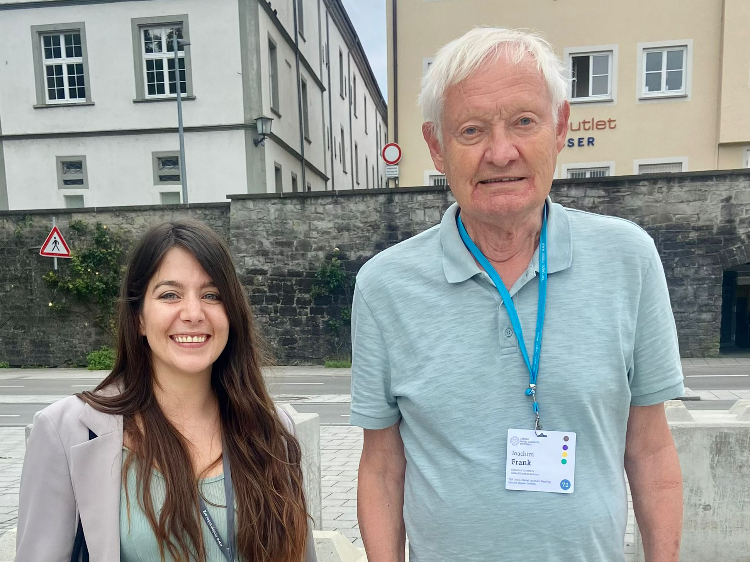
Institute of Molecular Science (ICMol) postdoctoral researcher Isabel Abánades Lázaro is currently participating in the prestigious Lindau Nobel Laureate Meeting after being selected by an evaluation committee to be part of this select group of 600 young scientists and scientists who live for a week and informally with more than 30 of the laureates in the disciplines of physics, chemistry, physiology and medicine.
The Lindau Meeting -from 26th June to 1st July- is presented as the world forum for young leaders of the future and selects participants from more than 100 countries for their talent and social commitment. Abánades Lázaro, a graduate in Chemistry from the University of Alcalá and PhD from the University of Glasgow, was interviewed for the blog "Women in Research" and nominated from among a multitude of applicants for the 70th edition, held in 2021 in an online format.
With the return of in-person, Isabel has been cited for having accumulated, among other merits, that of being the holder of a Marie Sklodowska-Curie grant (2019-2021), in addition to her vocation for dissemination and teaching. This multidisciplinary meeting in the German town of Lindau is aimed at the exchange of ideas and knowledge between young researchers and laureates. It has been held since the end of the Second World War, in 1951, to bring European scientists back into contact with each other.
The meetings focus alternately on the three Nobel Prize disciplines of natural sciences, physiology and medicine, physics and chemistry. An interdisciplinary meeting revolving around the three natural sciences is held every five years. This year's focus is on chemistry. In addition, the Lindau Meeting on Economic Sciences is held every three years, attended by graduate students, PhD students or postdocs under 35 years of age and with a proven command of English.
Although the focus of the meeting is the contact with Nobel Prize winners, the organisation strongly promotes the exchange between young scientists and the construction of international networks that are maintained over time. For Isabel, participating in this meeting "is an exceptional opportunity to meet leaders in science and hear their personal stories". The ICMol researcher considers that, behind this type of personalities, "you discover close and humble people, with very inspiring experiences of self-improvement".
Abánades Lázaro studies the interrelation of the synthetic conditions of metal-organic networks for the control of their properties - porosity, stability and reactivity, among others - in relation to functions such as the targeted release of drugs, the selective storage of gases, and energy conversion through catalytic reactions. His work has obtained funding from national and international agencies.
One of her projects aims to create defect chemistry in MOFs (metal-organic networks in this case of titanium) and to do so "à la carte". That is, "to be able to control where, which ones and how many you create because these structures, when they have defects, are much more reactive and can therefore generate energy more quickly or be more porous, allowing, for example, more gases or water to be stored", explains.
She currently holds a contract from the Juan de la Cierva-Incorporación programme for the promotion of talent in science and is part of the Crystal Engineering Lab (CEL) led at the Institute of Molecular Science by researchers Guillermo Mínguez and Mónica Giménez-Marqués.
The scientific programme of the Lindau conferences includes debates, master classes, poster sessions and panel discussions. In addition, the meeting features scientific walks of Nobel laureates with young scientists, lunches, lectures and meeting places, which encourage exchange and conversation between young researchers and Nobel laureates.

